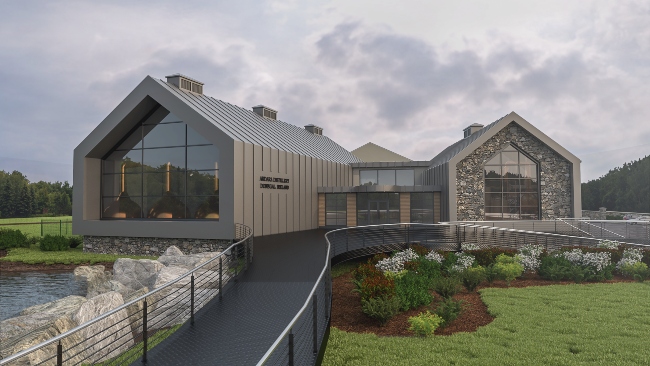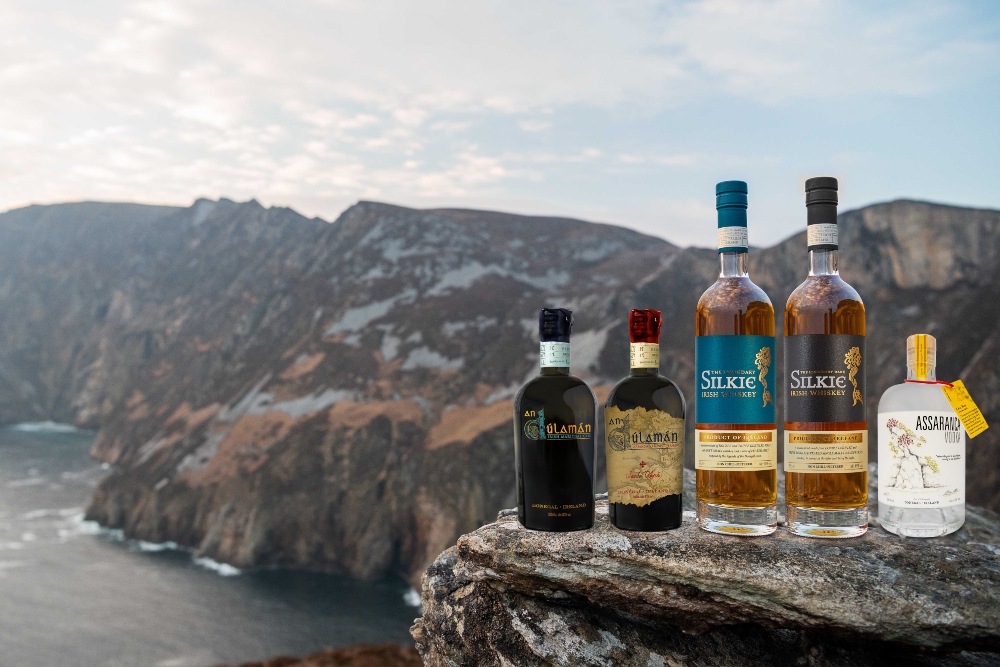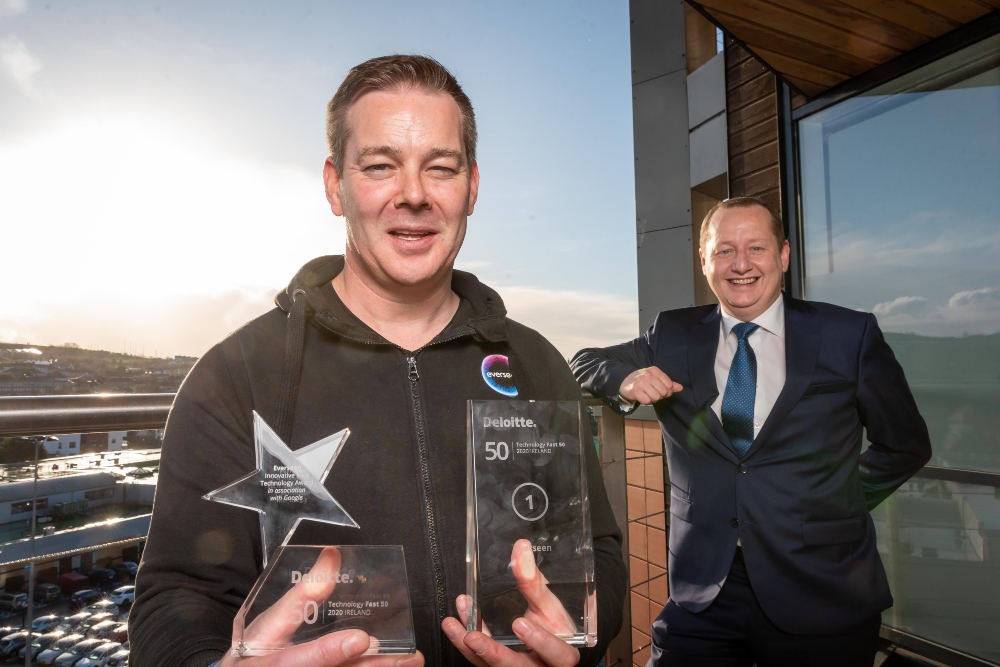Bringing to life the first distilling company in Donegal for over 175 years, James and Moira Doherty’s calling is to recreate the smoky Irish whiskies from before the industrial revolution. They talk to Think Business about their quest to reclaim the distilling heritage of Donegal through Sliabh Liag Distillers.
What’s your background and what led you to start Sliabh Liag Distillers?
JD: I studied agriculture and went to East Africa and grew tea and coffee there for seven years. I spent a year in Zimbabwe, which is where I met my wife, Moira. After a brief stint in the UK to finish my degree and do a master’s degree in irrigation and drainage, we went back to Malawi for six years, working on tea estates.
When our eldest daughter was school going age, we came back to the UK and I worked for distiller William Grant and Sons. I worked my way up through the company. I ran the sales operation for the international business for four years.
“I very quickly realised that I was done with the corporate journey and I wanted to build my own distillery”
Then I left and joined Foster’s beer in Australia looking after the international business but just as I joined, the company was taken over by SABMiller who sent me to Hong Kong to open up Asia for Peroni beer. We stayed for two and a half years. I very quickly realised that I was done with the corporate journey and I wanted to build my own distillery.

How did you develop the brand and is there anything you would do differently?
MD: We came back from Hong Kong to county Donegal with some fully formed ideas around the brand. What we were clear on very early was that we believed regionality would come back to Irish whiskey and that Donegal has the richest illicit distilling heritage in the country. Not having a distillery there seemed like a complete anathema to me.
“We want to show that Donegal is a place of possibility and opportunity and to give people a choice about whether they leave the county or not, rather than like my mum, dad and granddad who were forced to leave”
We want to show that Donegal is a place of possibility and opportunity and to give people a choice about whether they leave the county or not, rather than like my mum, dad and granddad, who were forced to leave because there wasn’t opportunity for them. We set out on a mission to reclaim the distilling heritage of Donegal, that’s been really clear and the rest of it fits into place.
We want to be true to the Irish language, to bring the Celtic legends of Donegal to life through whiskies and gins that will polarise. We’re not interested in appealing to the masses. Donegal is a place apart and our liquids reflect that.
“The biggest lesson we’ve learned is that it takes twice as long and it costs twice as much as you think”
Therefore, we have smoky whiskies, which generally isn’t typical of Irish whiskey and we have savoury gins in a very sweet world. But what we’ve learned is that we probably over complicated some parts of the brand. We’ve simplified the stories in recent times. The story of Dulaman Gin used to have seven pillars to it, now it has four. Our liquids are exceptional drinks and they connect on a provenance and an intrinsic level, but we still have work to do to make that emotional connection. We need to build more emotion for the consumer into the drinks.
The biggest lesson we’ve learned is that it takes twice as long and it costs twice as much as you think. Whatever your budget is, double it and double the time you think it takes to set up the business.

“We’re not interested in appealing to the masses. Donegal is a place apart and our liquids reflect that”
What challenges did you meet and how you did you overcome them?
JD: The biggest challenge was the loss of the original site for the distillery in Carrick. We had full planning permission but there was a small but committed band of people who wanted to stop the distillery. In hindsight, we should have pulled the pin on it earlier and found another site quicker, like the one we now have in Ardara.
Finding people who want to work with you, who understand you and can get inside your head is hard. We have been very lucky that lots of good people worked with us; whether designers, finance people or our architects. You need to find the people who understand how to get the business from A to B.
“What we’ve learned is that we probably over complicated some parts of the brand. We’ve simplified the stories in recent times”
What advice would you give people starting a business?
MD: When you’re doing something because it’s worth doing, it has an element of cause to it, which for me it does. We are very clear on what we’re trying to do. It doesn’t matter how bad our day is, we focus on the vision. Stay focused on that prize at the end because that’s what matters, the rest of it is noise. You just need to soldier through it.
You need friends around that you can lean on and who are honest with you if something isn’t working. Also, celebrate those successes. I am a terror for immediately moving onto the next thing. We don’t spend enough time enjoying the good, successful moments.
“We still have work to do to make that emotional connection. We need to build more emotion for the consumer into the drinks”
What are your growth plans?
MD: We’ve got an existing business – producing gin and blending and bottling Silkie Irish whiskey in Carrick. They are available in 25 countries around the world, all at different stages of growth and development. It’s an enormous job to make sure those brands are true to what we’re trying to do and that we get them into markets, make them come alive in those places; bring a little piece of Donegal around the world.
Alongside that, we’re building a whisky distillery in Ardara. It is about the size of Teeling Whiskey in Dublin, which for a rural distillery is big. That’s a €6m build right now. There are two more phases to come so ultimately it’ll cost about €10m to build it. We hope to be distilling by July next year.
“Finding people who want to work with you, who understand you and can get inside your head is hard”
What were the challenges of breaking into international markets?
JD: Because we’ve come at this from a regional perspective, it has given us a uniqueness, which has helped. instead of saying we are an Irish whiskey or Irish gin brand, we are saying we are a Donegal brand. We are from a particular part of Ulster, which has a style and history of its own. We bring a unique story to countries that are used to the more typical Irish brands.
We taste and look different. This is a taste from before the Industrial Revolution. A taste of Irish whiskey as it was hundreds of years ago, not as it is now. That’s a compelling story, so there’s a lot of time spent trying to sell that.
“Stay focused on that prize at the end because that’s what matters, the rest of it is noise. You just need to soldier through it”
The whiskey world in Ireland is consolidated into what has become city-based, a bit Dublin cool. We wanted to bring it back to when it was rural, more honest and unvarnished and truer to this sense of place that we have in Donegal.
People who have left this county, all get called back for something. They always have this hankering. For me, even though I wasn’t born here, it has that effect on Moira and me. That’s a distinctive position, which in a commercial sense has some real longevity in it. We can build a sustainable, robust business that will provide employment and opportunity in this area for the next few hundred years.
Interview by Olivia McGill
Published: 17 December 2020






